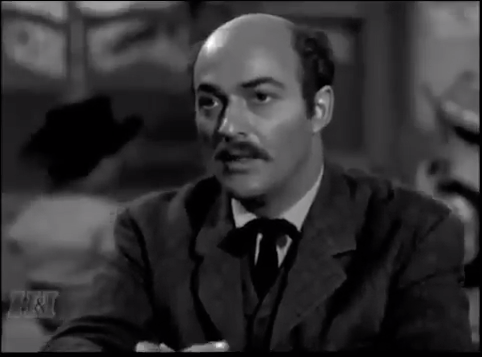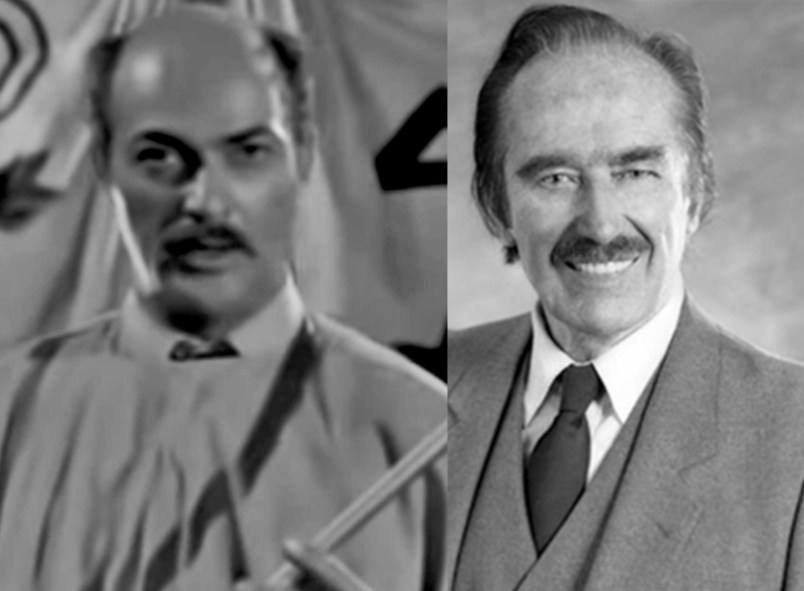You’ve probably seen this really bizarre story of the Twilight Zone-like episode of the TV show “Trackdown” from 1958 which bears some difficult-to-believe resemblances to 2019 America. A conman named Trump comes to a town and gets everyone panicked that the world is about to end unless they agree to let him build a wall that will save them. As I wrote yesterday, when I first happened on the story I had to read it several times and then check it several different ways because I was sure it had to be a hoax. It’s not. Here’s our story if you missed it yesterday. But is this totally a weird coincidence? I think there’s a decent chance it’s actually not.
What got me thinking about this was a note from TPM Reader MN who flagged this thread on Twitter from Jed Shugerman, a law professor at Fordham Law School.
The gist is this. The episode is from 1958. Our President Trump was 12 years old. So clearly it’s not about him. But Trump’s father, Fred Trump, was already a figure of some notoriety, at least in the greater New York region and actually beyond. Though he was a successful businessman and real estate investor, he also had a reputation as a huckster and a racist from New York to Washington, DC and to a degree nationwide.
No less a figure than Woody Guthrie, who leased one of Fred Trump’s Beach Haven apartments from 1950 to 1952, wrote or wrote new lyrics for a number of songs attacking Trump. Here’s one example.
I suppose
Old Man Trump knows
Just how much
Racial Hate
he stirred up
In the bloodpot of human hearts
When he drawed
That color line
Here at his
Eighteen hundred family project ….
Fred Trump had also figured prominently in 1954 Senate hearings into profiteering off federal subsidies designed to support affordable housing for returning World War II veterans.
As Trump biographer Michael D’Antonio explained in The Daily Beast three years ago …
[Federal investigator] McKenna’s testimony about Trump had appalled [Senator] Capehart, who said the details had made him “nauseous” and that builders had taken advantage of both the federal government and countless World War II vets. Capehart, a Republican, also said that the builders and the FHA were mired in “a grand scandal” far worse than the infamous Teapot Dome corruption case of the 1920s, in which bribes were accepted by officials to grant rich oil leases on federal land.
A parade of bureaucrats and developers, Trump included, testified in July 1954. Clyde L. Powell deflected his interrogators by repeatedly citing the protections against self-incrimination enshrined in the Constitution. One builder pounded the witness table as he insisted upon his innocence. Another suffered a heart attack in the hours after his testimony.
No one performed more brilliantly than the witness who consumed most of the afternoon hearing on July 12. Dapper in a fine suit and carefully trimmed mustache, Fred Trump sat at the witness table flanked by attorneys. With a flair that foreshadowed his son’s future performances on TV, Trump outlined the convoluted but ultimately legal means he used to get the most for himself out of a program created to benefit vets and others deemed deserving of help.
So Trump’s dad wasn’t some unknown figure, either economically or culturally, in the 1950s. Indeed, if he were a household name, naming a character in a show after him would likely have been too much. But as an allusion to a semi-known operator it makes more sense. Weirdly, the actor in the episode, Lawrence Dobkin, actually looks a bit like Fred Trump.

Now this might have been a slam dunk if it turned out that this episode of Trackdown was written by someone who had an earlier career dustbowling with Woody Guthrie. But no dice. Or at least nothing I’ve come up with. It was written by John Robinson (1923-1999) who appears to have been a journeyman screenwriter in the early days of television. He had writing credits on 18 episodes of Trackdown, another 38 for Dragnet and a slew of other shows. The director was Walter McDougall (1917-1991), again, journeyman TV director who had credits from everything from Cowboy G-Men in 1953 to 18 episodes of Dukes of Hazzard in the early 1980s.

The actor, Lawrence Dobkin (1919-2002), who also directed one episode of Trackdown, had an almost mind-bogglingly long acting career, appearing in everything from Biff Baker, USA in 1953 to appearances on Melrose Place, NYPD Blue and Judging Amy in the late 1990s and early aughts. IMDB lists fully 212 separate acting credits for Dobkin, another 81 as a director.
I didn’t go too far down the rabbit hole on this one. But as you can see, I couldn’t quickly come up with anything obvious about the men who put together the episode that might give a clue indicating a connection to Fred Trump or Guthrie or the investigations into federal contract profiteering.
What seemed a bit more telling to me is that Trump is simply a pretty uncommon name. It originates independently in England and Germany but only a few hundred people still have the name in each country. (The President’s Trump family was originally Drumpf, a name later anglicized to Trump.) According to Wikipedia, there are roughly 5,000 people in the United States with the surname Trump, and almost 1,000 of them are in Amish country in Pennsylvania. Again, that’s pretty uncommon.
All things considered, Trump’s notoriety in the 1950s, the un-commonness of the name, I’d say it’s slightly more likely than not that the use of the name was some reference to Trump’s father, Fred, though as yet, there’s no direct evidence.






